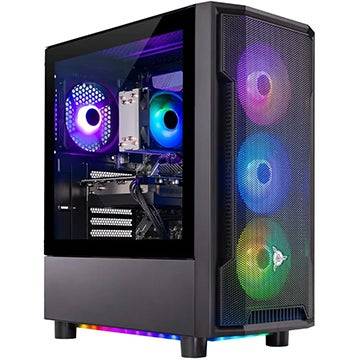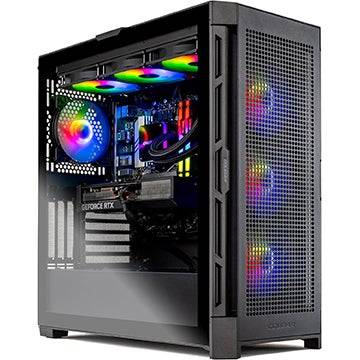Just a few months after the release of the AMD Ryzen 7 9800X3D, the Ryzen 9 9950X3D arrives, packing 16 cores and 32 threads with advanced 3D V-Cache technology. While this beastly processor might be overkill for casual gamers, it effortlessly keeps pace with high-end GPUs like the Nvidia RTX 5090. However, its hefty price tag of $699 and 170W power consumption make it a tough sell unless you're building a top-tier gaming rig.
If you're considering purchasing, the Ryzen 9 9950X3D goes on sale March 12, starting at the listed price of $699. Keep in mind that prices may fluctuate based on demand.
AMD Ryzen 9 9950X3D – Visuals
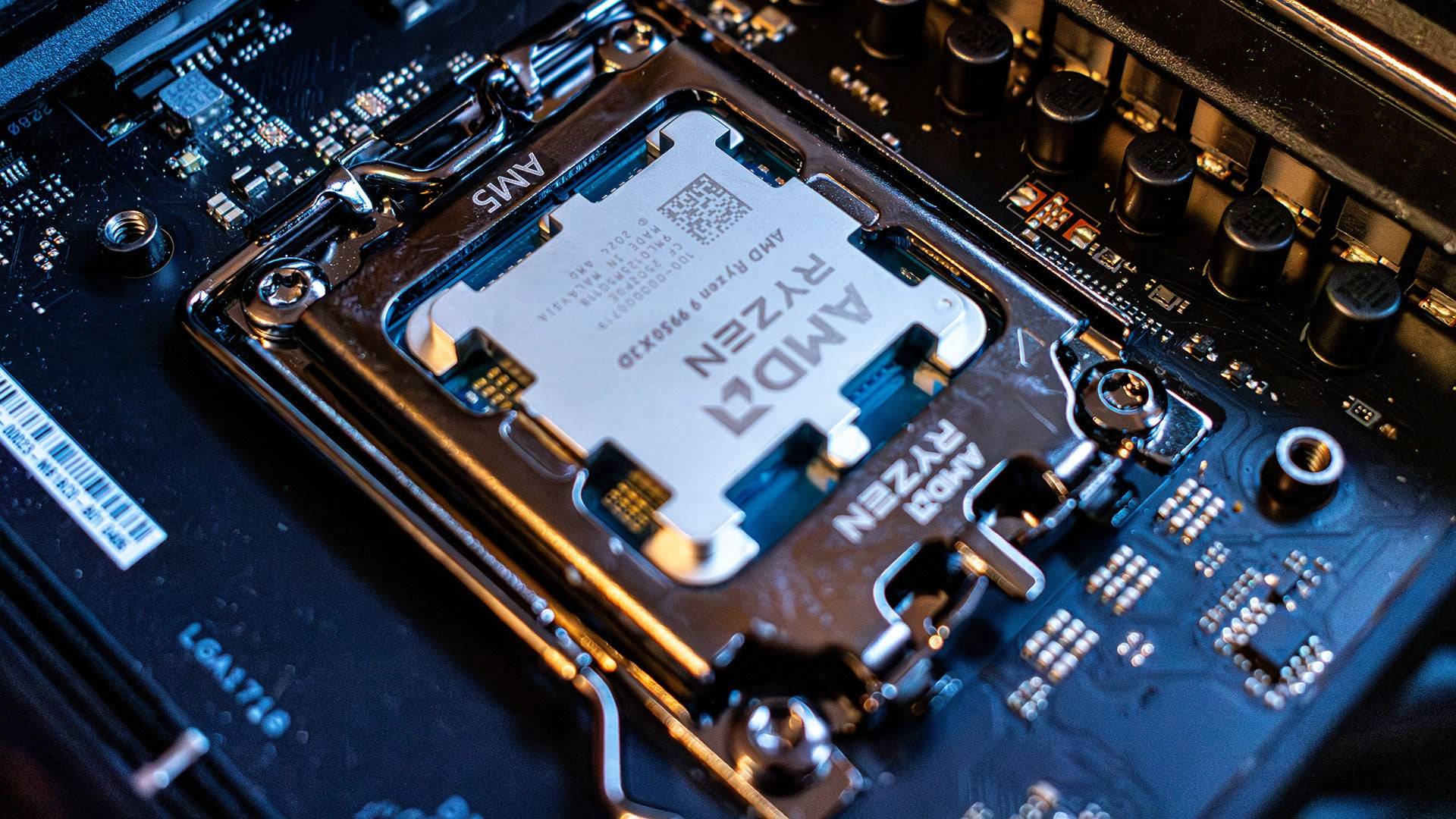
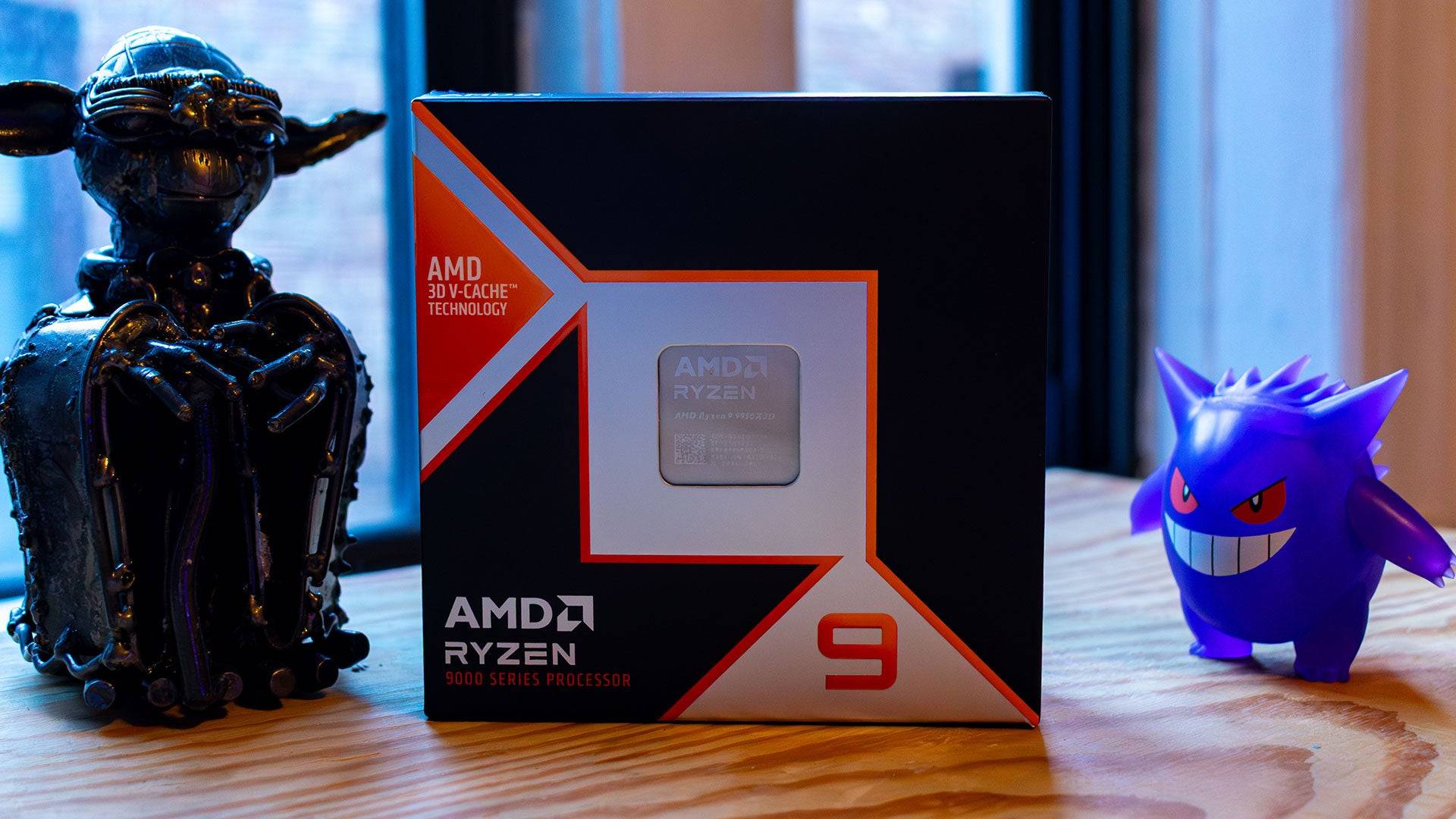
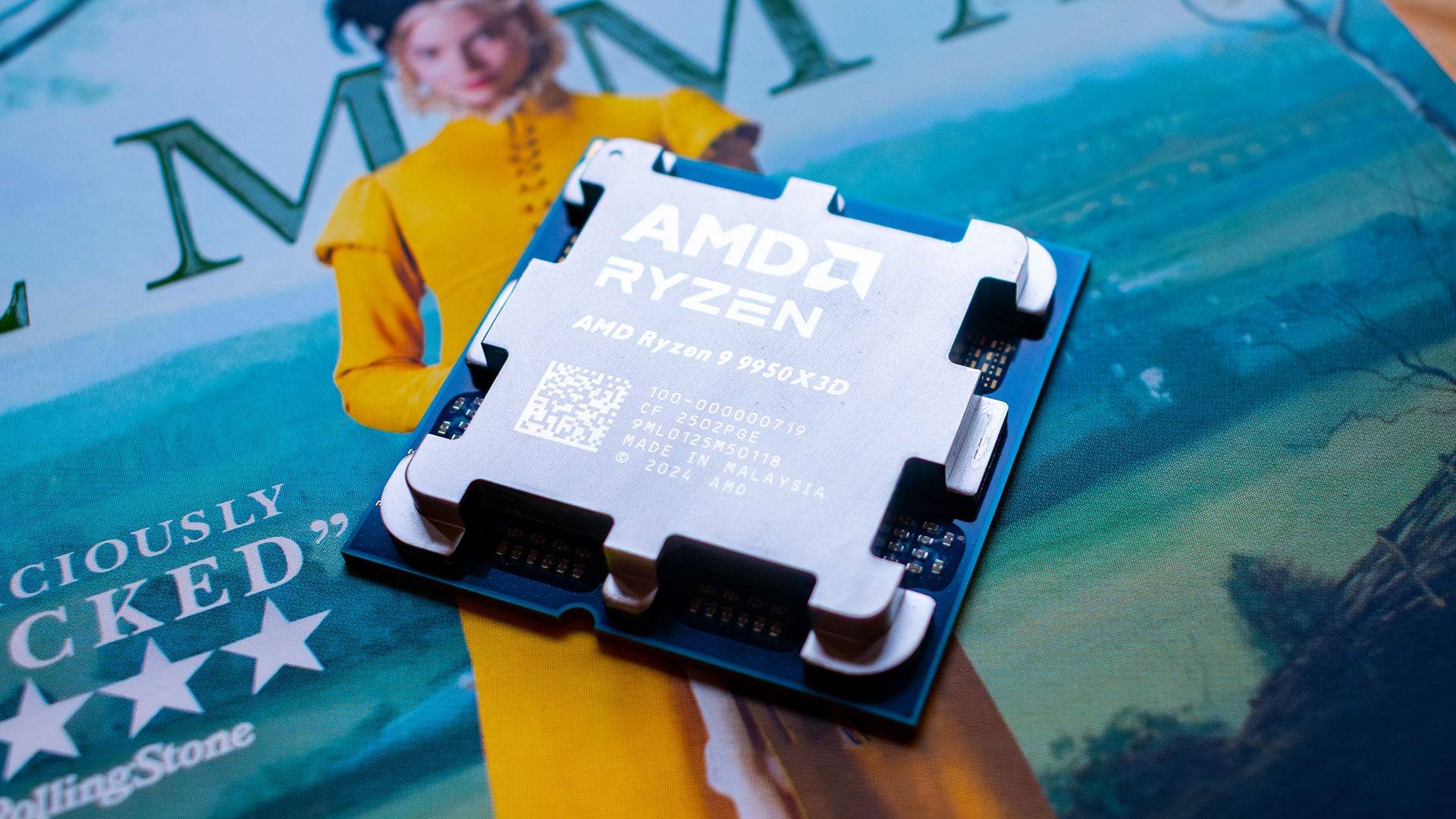
Specs and Features
The Ryzen 9 9950X3D essentially mirrors the core architecture of the standard Ryzen 9 9950X but pairs it with the enhanced 2nd-generation 3D V-Cache seen in the Ryzen 7 9800X3D. This combination delivers stellar multi-core performance alongside improved gaming capabilities thanks to the larger cache.Unlike the previous Ryzen 9 7950X3D, the 3D V-Cache is now positioned beneath the CPU cores instead of above them. This seemingly minor adjustment significantly impacts thermal performance. Since the CCD (Core Complex Die), which generates most of the heat, is closer to the Integrated Heat Spreader (IHS), it dissipates heat more efficiently. Additionally, AMD’s thermal algorithms leverage this reduced temperature, allowing the Ryzen 9 9950X3D to operate faster and longer.
The placement of the cache isn’t just about cooling—it reduces latency by minimizing the distance data must travel between the cores and cache. Furthermore, the increased space enables AMD to pack an impressive 144MB of combined L2 and L3 cache, matching the last-generation Ryzen 9 7950X3D but far exceeding non-X3D processors.
Both the Ryzen 9 9950X and 9950X3D share a 170W TDP, though the initial 9950X has a slightly higher potential PPT. In testing, both processors peaked at 200W, but the 9950X3D maintained a lower peak temperature of 79°C during the benchmark suite, despite being tested on a different cooler than the original 9950X.
Good news for compatibility fans: the 9950X3D works with any AM5 motherboard, and AMD has confirmed support for this socket until at least 2027.
AMD Ryzen 9 9950X3D – Benchmarks
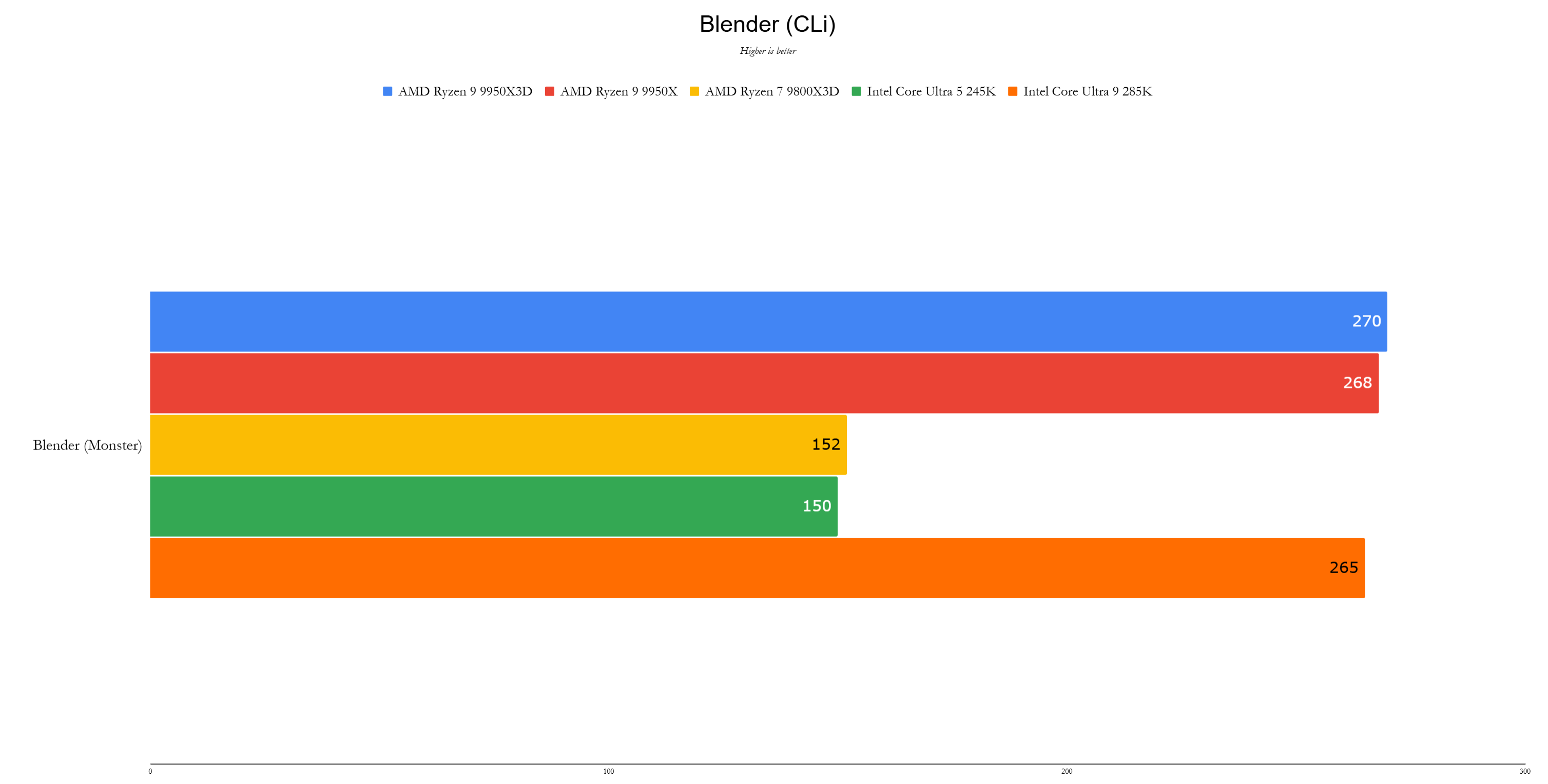
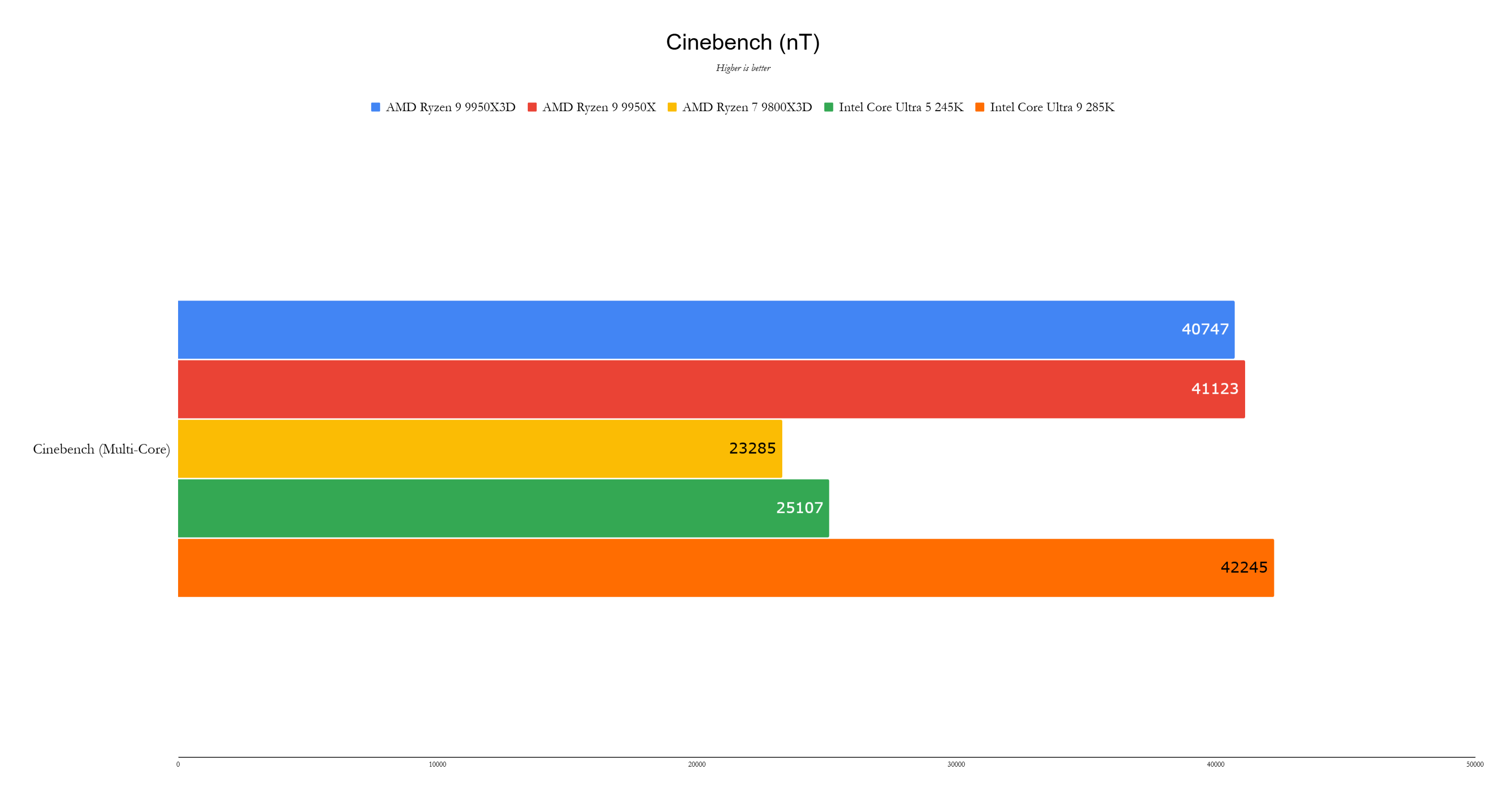
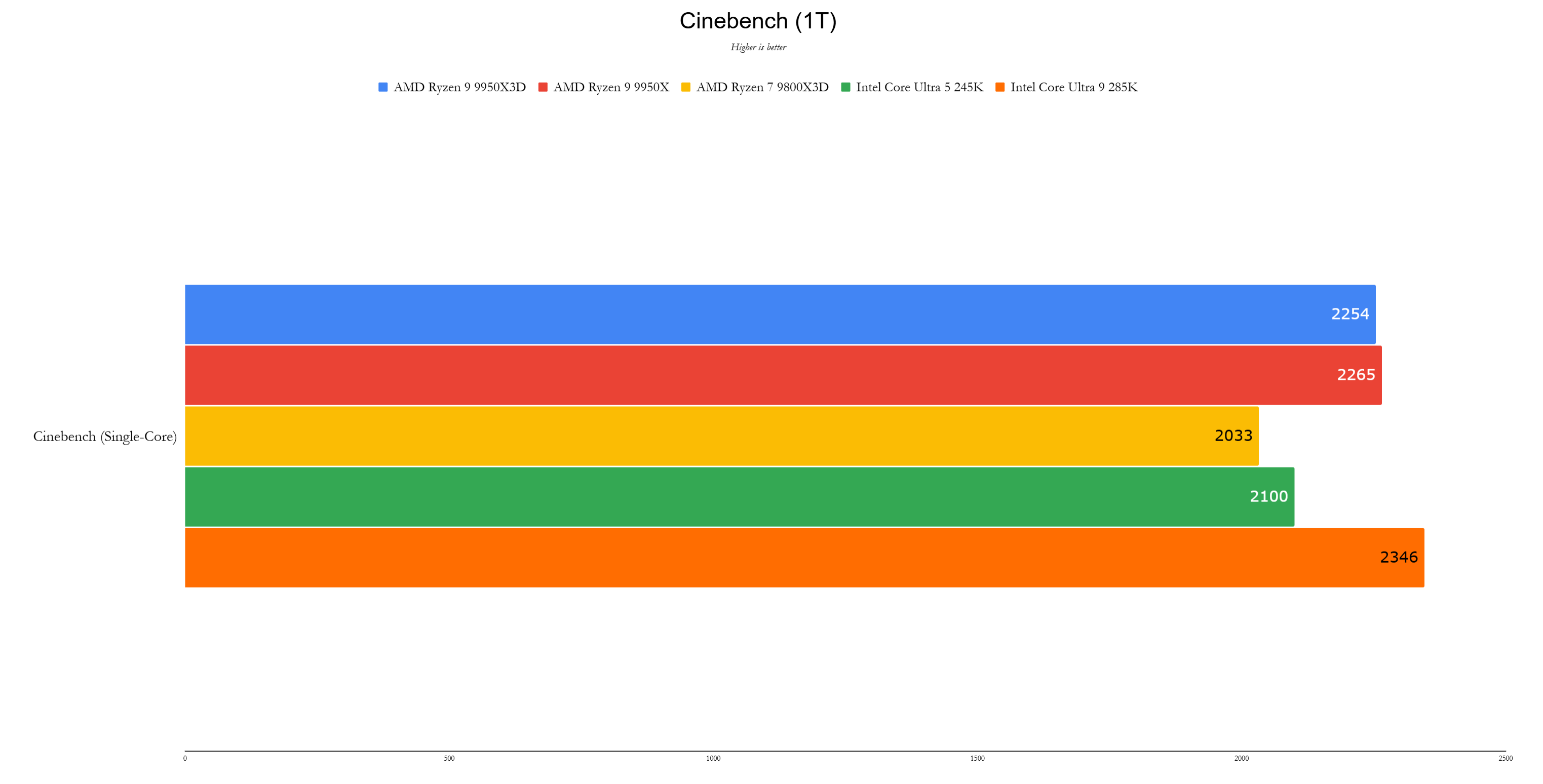


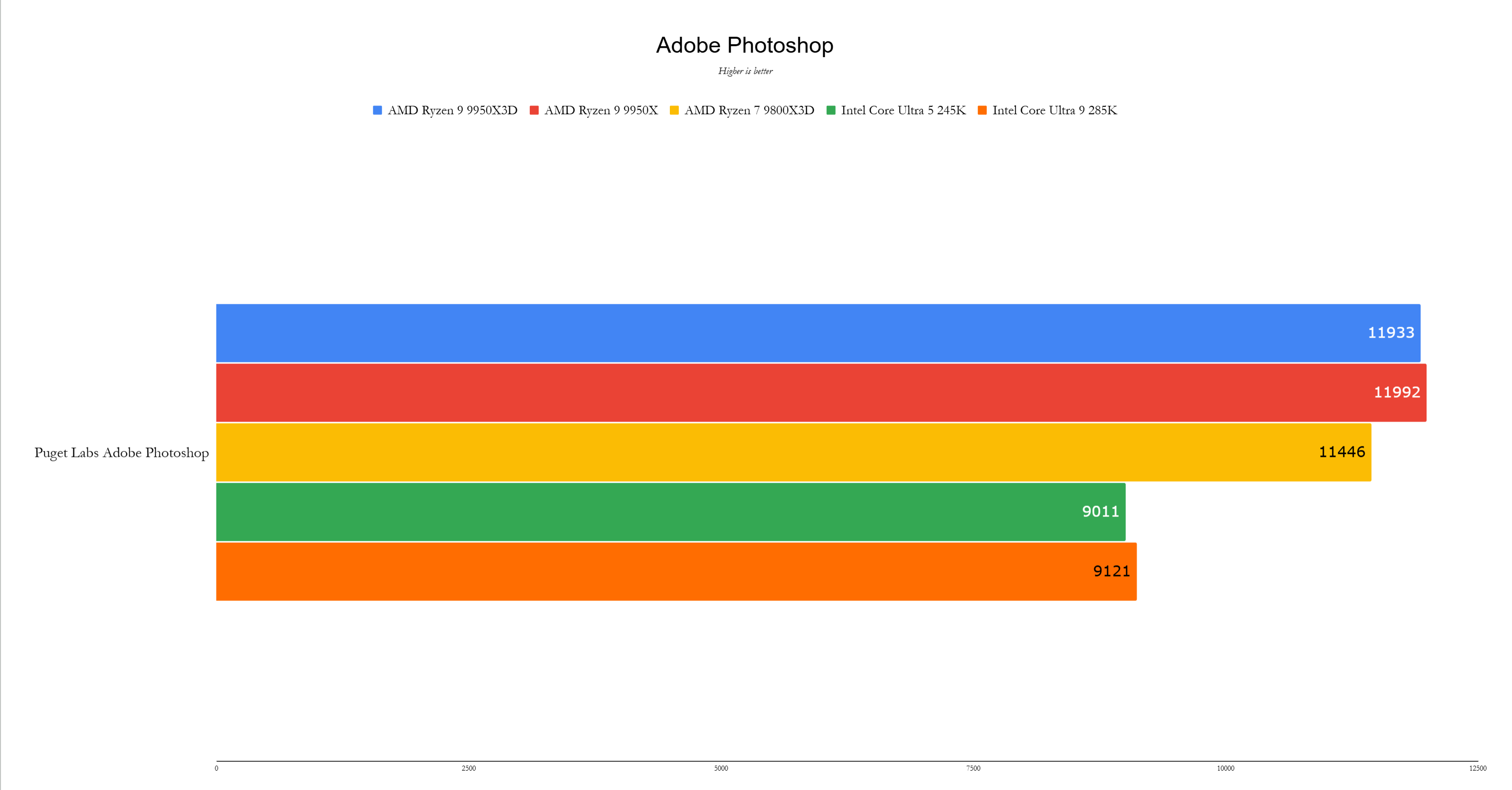
Performance
Before diving into performance metrics, note that all CPUs were tested on identical hardware, except for the Ryzen 9 9950X, which used an Asus ROG Crosshair X670E Hero motherboard and Corsair H170i 360mm AIO cooler. This discrepancy could influence results slightly, though tests were conducted at stock settings.Test Bench:
- GPU: Nvidia GeForce RTX 4090
- Motherboard: Asus ROG Crosshair X670E Hero (for Ryzen 9 9950X3D); Asus ROG Crosshair X870E Hero (for Ryzen 7 9800X3D)
- RAM: 32GB G.Skill Trident Z5 Neo @ 6,000MHz
- SSD: 1TB PNY CS3140 Gen4x4 NVMe
- Cooler: Asus ROG Ryujin III 360 ARGB Extreme
Despite the hardware difference, the Ryzen 9 9950X3D proves unstoppable in creative benchmarks, easily keeping up with the industry’s top-tier processors. Surprisingly, it even matches or exceeds the Ryzen 7 9800X3D in single-core tasks. For instance, in Cinebench 1T, the 9950X3D scores 2,254 points versus the 9800X3D’s 2,033—a 10% improvement. Similarly, in the 3DMark CPU Profile test, the 9950X3D scores 1,280 points, nearly matching Intel’s Core Ultra 9 285K’s 1,351 points.
When it comes to multi-threaded workloads, the Ryzen 9 9950X3D truly shines, achieving 40,747 points in Cinebench’s multi-core test. Although it falls short of the Ryzen 9 9950X’s 41,123 points and Intel’s Core Ultra 9 285K’s 42,245 points, its gaming performance makes up for it.
In Total War: Warhammer 3 at 1080p with Ultra settings, the 9950X3D achieves 274 fps alongside the RTX 4090, surpassing the 9800X3D’s 254 fps and Intel’s 255 fps. However, in Cyberpunk 2077 at 1080p with ray tracing disabled, it drops to 229 fps, compared to the 9800X3D’s 240 fps. Still, this beats Intel’s 165 fps.

